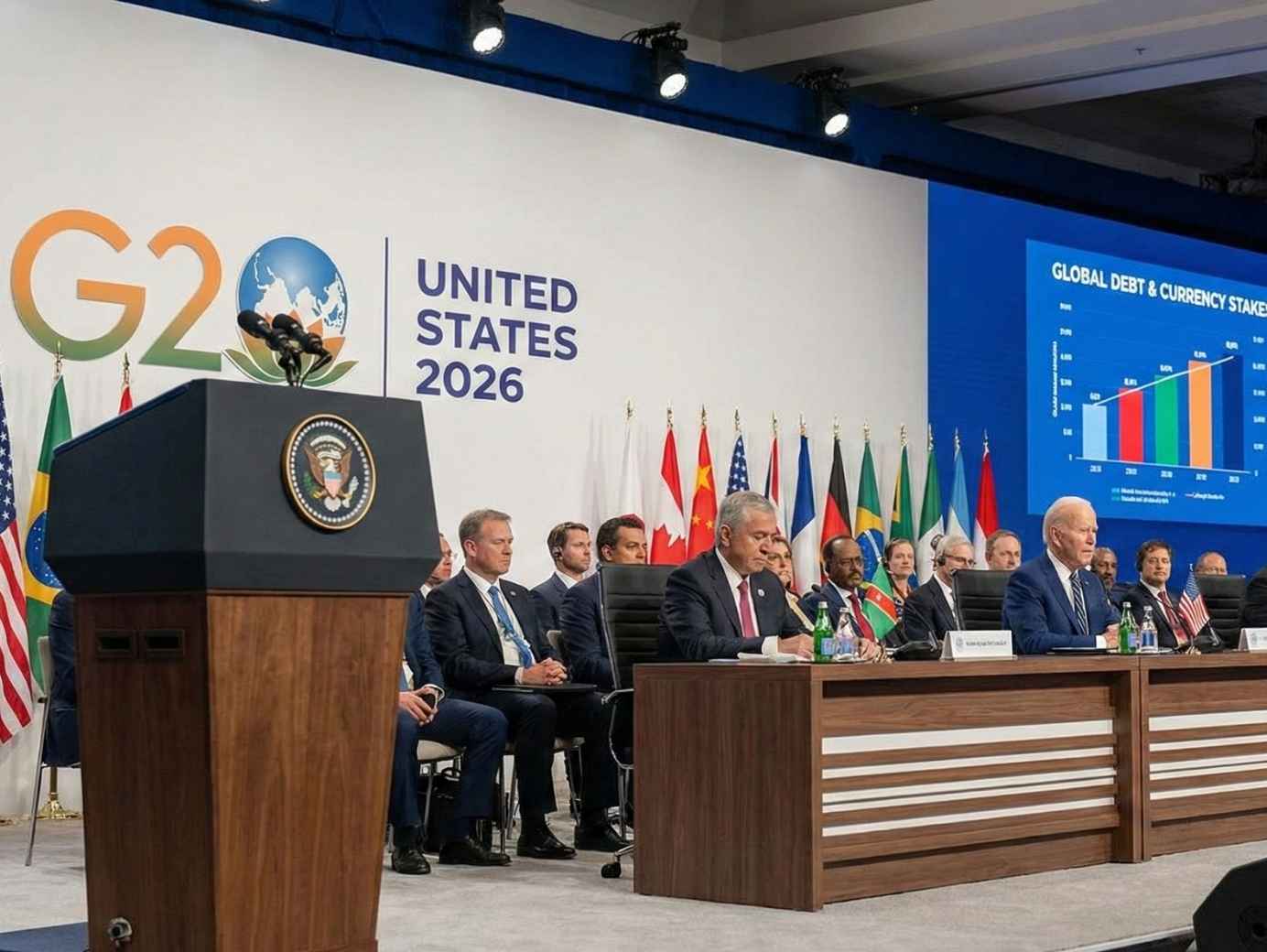G20 Shifts Focus as U.S. Assumes Presidency: Debt, De-Dollarization and Global Stakes
The G20 has entered a new chapter as South Africa officially handed over the presidency to the United States. Global attention is now on how the U.S. will steer discussions on pressing economic challenges. Emerging economies are facing record-high debt levels while debates around de-dollarization, the effort to reduce reliance on the U.S. dollar, are intensifying. How the G20 under American leadership addresses these issues could reshape the global financial landscape.
The Debt Challenge in Emerging Economies
Emerging markets are struggling with unprecedented debt levels, worsened by interest rate increases, supply chain disruptions and inflation pressures. Analysts warn that without coordinated action from global powers, many nations could face serious financial strain.
The U.S. now faces the task of proposing solutions that balance fiscal responsibility with the development needs of these countries. Discussions are expected to focus on debt restructuring, international financial assistance and sustainable financing.
De-Dollarization and Global Implications
De-dollarization has moved from theory to action in recent years. Countries including China and Russia have taken steps to reduce their reliance on the U.S. dollar in trade and reserves. The G20 under U.S. leadership will need to address how to maintain confidence in the dollar while responding to legitimate calls for more diversified financial systems.
The results of these discussions could influence trade agreements, currency policies and investment flows with ripple effects for both emerging and developed markets.
Emerging Market Debt Table 2025
| Country | Public Debt / GDP (%) |
|---|---|
| India | 81.8% |
| Brazil | 76.2% |
| South Africa | 77.9% |
| Indonesia | 40.8% |
| Mexico | 53% |
U.S. Leadership and Global Expectations
The U.S. presidency brings both opportunities and scrutiny. Investors and policymakers will watch closely to see whether American-led initiatives can provide relief to heavily indebted economies while maintaining stability in the international financial system.
The U.S. will also need to build consensus among G20 members, balancing the interests of emerging economies, European nations and Asian stakeholders. Success could reinforce U.S. influence in global finance. Missteps could accelerate moves toward alternative economic structures.
Key Areas to Watch
- Debt relief initiatives for emerging economies
- Currency diversification and de-dollarization efforts
- Global economic stability and market reactions to U.S.-led proposals
FAQs
What does the G20 presidency do? The presidency sets the agenda for the year and guides discussions and action plans among the 20 major economies.
Why is emerging market debt a concern? High debt limits countries’ ability to invest in growth and can lead to financial instability if not managed collaboratively.
What is de-dollarization and why does it matter? De-dollarization is the process of reducing reliance on the U.S. dollar in trade and reserves. It affects global currency dynamics and U.S. financial influence.
How long is the U.S. G20 presidency? The presidency lasts one year. During this time, the host country leads discussions and hosts key meetings.
Follow DF Media for More Information






